Presbyterian Church reflects on its role in Troubles in new book
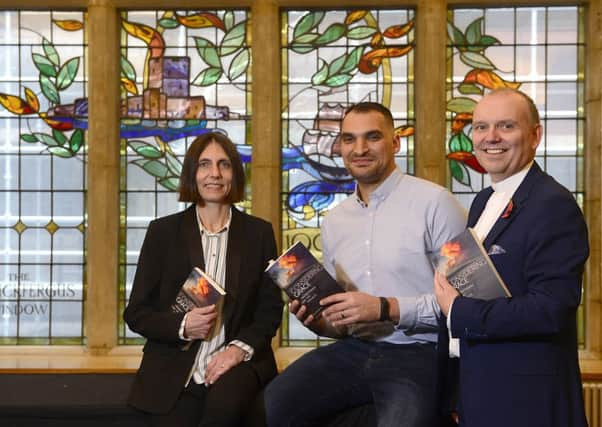

A total of 120 people were interviewed as part of the project which has culminated in ‘Considering Grace’, which was launched in Assembly Buildings yesterday.
The book is introduced by journalist Susan McKay and concludes with a poignant afterword from Alan McBride, a member of Bloomfield Presbyterian Church whose wife and father-in-law were murdered in the Shankill bomb in 1993.
Advertisement
Hide AdAdvertisement
Hide AdOver the coming four days the News Letter will be publishing excerpts from the book.
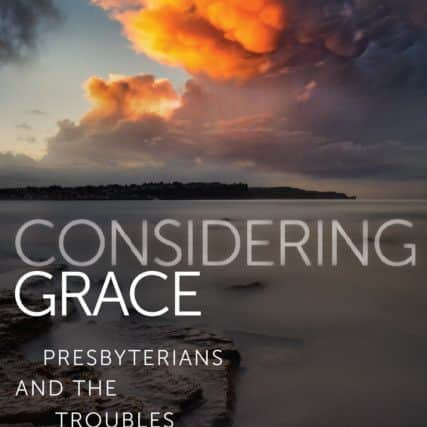

The first comes from Rev Russell Birney who said he was “in over his head” after witnessing the aftermath of the Tullyvallen Orange Hall massacre in 1975.
Mr Birney, the son of a grocer in Lisnaskea, Co Fermanagh, felt called to minister around the border.
In 1973, he submitted his name for the vacancy in Downshire Road, Newry.
Advertisement
Hide AdAdvertisement
Hide AdHe was called, and shortly after added the convenorship of the rural congregations of Newtownhamilton and Creggan to his charge.
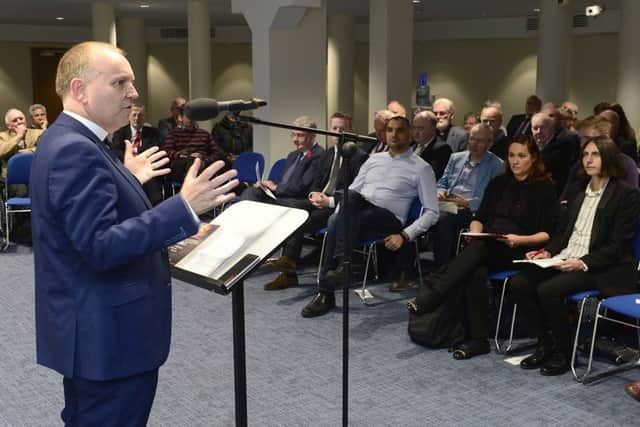

“Newry was afflicted with bombings and killings of neighbours of mine. Creggan is about a mile from Crossmaglen, which was the cockpit of the rural campaign of the IRA. It was one incident after the other. I had to travel up from Newry along roads, day and night, that were potentially booby trapped for the Army.”
A rota of men was organised to guard his church in Newry, day and night, “because there were incidents of churches being attacked and people being attacked coming out of churches”.
On September 1, 1975, Russell got a call “about an incident in Tullyvallen”. The IRA had opened fire in an Orange hall. Four men were killed instantly, and a fifth died later of his wounds. Eighty-year-old John Johnston, a member of Russell’s Creggan congregation, was among the dead.
That night, Russell visited the families.
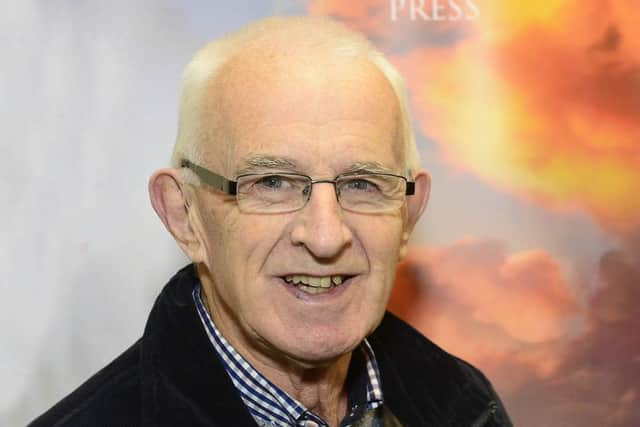

Advertisement
Hide AdAdvertisement
Hide Ad“I wasn’t trained pastorally for an incident like this. When I came down from Tullyvallen that night, having visited those homes – I hadn’t seen any bodies, I was just with the relatives – I sat on the edge of my bed and cried. I saw the children of some of the deceased and seriously injured. I called in hospital and I had seen some of them being treated. It was hard at that time. It was an aspect of ministry that I wasn’t prepared for. I was in over my head, so I had to adapt.”
Russell looked out over those gathered in Clarkesbridge Presbyterian. The small church was overflowing with mourners. It was a united service, organised after the murders in Tullyvallen Orange Hall.
He read out a statement pledging that there would be no retaliation. It was an agreed statement, which Rev John Hawthorne of the Reformed Presbyterian Church had helped him write.
“I read out a statement, pleading for peace and that there be no retaliation for this event.”
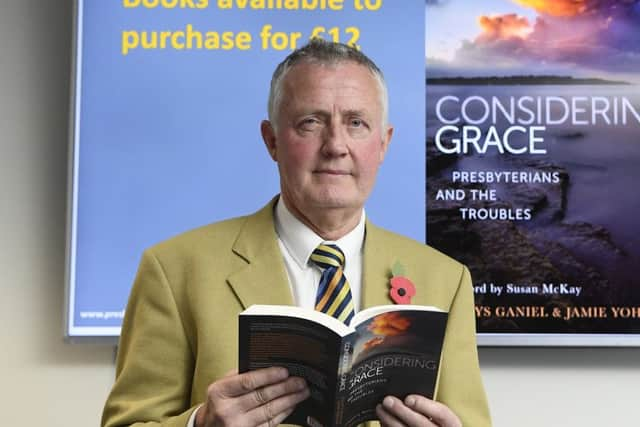

Advertisement
Hide AdAdvertisement
Hide AdRussell invited those who agreed with the statement to stand. Not everyone stood immediately, so he waited. And waited. And waited – until everyone in the church was on their feet.
During a time marked by tit-for-tat killings, it was a remarkable occasion.
“I’ve been told subsequently that the statement prevented retaliation because there were people at the service who were determined they were going to avenge. We were speaking for the victims, for those who were wounded, because they were fine people who would not have wanted revenge. There was no tit-for-tat following Tullyvallen Orange Hall.”
Five months later, two of the guns used in Tullyvallen were turned on the 10 Protestant workmen murdered in the Kingsmills massacre, just a few miles away. None of Russell’s congregants were killed in Kingsmills, but he took part in the funerals and provided pastoral support in the community.
Advertisement
Hide AdAdvertisement
Hide AdRussell also needed support, which he found in other local ministers and his congregations. “They were very dark days and they demanded a lot of time. My congregation was very good in allowing me to give that time, because they were sympathetic in every sense to it.”
‘Considering Grace’ records the deeply moving stories of 120 ordinary people’s experiences of the Troubles, exploring how faith shaped their responses to violence and its aftermath.
Presbyterian ministers, victims, members of the security forces, those affected by loyalist paramilitarism, ex-combatants, emergency responders and health-care workers, peacemakers, politicians, people who left Presbyterianism and ‘critical friends’ of the Presbyterian tradition provide insights on wider human experiences of anger, pain, healing, and forgiveness.
Described as the first book to capture such a full range of experiences of the Troubles of people from a Protestant background, it also includes the perspectives of people from border counties and features leading public figures, such as former deputy first minister Seamus Mallon of the SDLP, Jeffrey Donaldson of the DUP, Garda Commissioner Drew Harris, and former victims’ commissioner Bertha McDougall.
Advertisement
Hide AdAdvertisement
Hide AdThe title – Considering Grace – is inspired by an interview with Rev Terry Laverty, minister of Portstewart Presbyterian.
As a teenager, his brother, who was in the Royal Ulster Constabulary, was shot dead by the IRA. Reflecting on his own personal struggle to come to terms with his brother’s death, he said: “I want to encourage anybody who is struggling as a result of violence and trauma to consider grace.”
The book’s co-authors are Queen’s academics Gladys Ganiel and Jamie Yohanis.
Gladys Ganiel is a sociologist of religion at Queen’s University Belfast. Her previous books include Transforming Post-Catholic Ireland; Evangelicalism and Conflict in Northern Ireland; Unity Pilgrim: The Life of Fr Gerry Reynolds CSsR; and The Deconstructed Church: Understanding Emerging Christianity, with Gerardo Marti.
Advertisement
Hide AdAdvertisement
Hide AdJamie Yohanis focuses on the intersection of confessional faith and state-funded education.
The minister who led the project, Rev Tony Davidson, said the church has not tried to cover up the variety of views among Presbyterians about the past.
Co-author of the book, Dr Gladys Ganiel, said: “Most studies of religion in Northern Ireland have focused on clergy and leaders – ‘Considering Grace’ explores how ordinary people responded to the Troubles.
“There are stories of faith and doubt, fear and courage, suffering and forgiveness, and division and reconciliation. But while the book contributes to the historical record of people’s experiences during the Troubles, it is foremost a book about the future.
Advertisement
Hide AdAdvertisement
Hide Ad“My hope is that the book will prompt people both inside and outside the Presbyterian Church to ponder how to go forward together in light of the suffering and tragedy of the past.”
Moderator Rt Rev Dr William Henry thanked the co-authors and all who made this book possible, “not least those who provided moving personal testimony and often poignant insights into this particularly tragic period in our history”.
He said: “Considering Grace is for reflection, remembrance and, at times lament; these are hard stories to read. But it is also a book to prompt us to consider gracious engagement, modelling the grace of Jesus.”
According to Jamie Yohanis, co-author of ‘Considering Grace’, the conversations he had with PCI members allowed for a balanced critique of the church’s role during the Troubles.
Advertisement
Hide AdAdvertisement
Hide AdDuring yesterday’s launch in Assembly Buildings in Belfast he said: “Asking people how they thought their church responded to the Troubles, provided an opportunity for criticism from within the flock to be heard.
“Many people talked about how they were supported by ministers and congregations in times of injury and bereavement but people did also not hold back in their criticisms which include a neglect of some of the victims, disappointment that PCI did not stand up to the Rev Ian Paisley’s sectarianism, and a lack of emphasis on reconciliation.”
Rev Tony Davidson, minister of First Armagh Presbyterian Church, leads the PCI’s Dealing with the Past Task Group that commissioned the book.
At the launch he said: “In March 2017 we wrote to every active minister in the general assembly asking them to nominate people under different categories who could tell a story.
Advertisement
Hide AdAdvertisement
Hide Ad“I would thank the ministers who gave names and pastorally followed up with interviewees.”
He thanked those who were willing to share their story “at considerable risk”.
He quoted a young person from one of the focus groups: “There are cracks in our wall at home, I only recently discovered those cracks were the result of a bomb in the neighbourhood.
“There are cracks in all of our families, churches, communities, and I need to understand why those cracks are there.”
Advertisement
Hide AdAdvertisement
Hide AdRev Davidson said: “These stories tell of how violence created cracks, cracks within families, congregations, the Presbyterian denomination as well as in wider society.
“There is a need to lament the devil in the details – the pain, the anxiety, the loss caused by these cracks.
“There is also a need for many more stories to be voiced, written down and kept to expose the cracks in all our walls.”
He added: “Our aim has been to tell a wider story than has been available to date, to acknowledge both what is good, but also to reflect upon the times when Presbyterians failed to be faithful peacemakers.
“This collection of personal accounts will assist the denomination to consider the effect of the conflict, its role in it, and the call by Jesus to be peacemakers.”